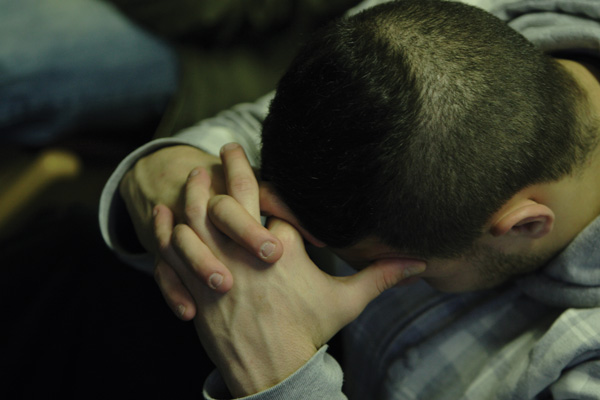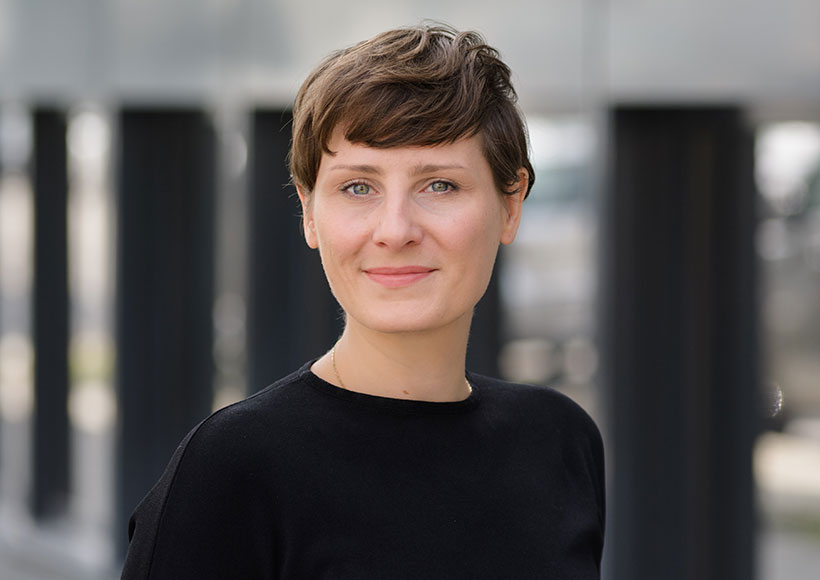// Interview: Ariane Wolf, Violence Prevention Network
Head of International Affairs and Transnational Cooperation
JT: What is Violence Prevention Network (VPN) and why did it come about?
AW: Violence Prevention Network is the largest civil society organisation dealing with prevention of radicalisation, disengagement, and exit work in Germany. Our main objective is supporting distancing processes from extremist mindsets and extremist groups.
Our work started as a pilot project in 2001, engaging with right-wing hate-crime offenders in youth prisons. After a short time, it became clear that this work was far beyond the scope of a pilot project and required long-term engagement. That is when Violence Prevention Network was founded. By now, we work both inside and outside prisons, with more than 100 employees. We have worked on more than 1500 cases in prison alone.
Working with offenders in prison and preparing them for their release is central. Most of the European penal systems will, at some point, release inmates that are sentenced for ideologically motivated crimes, or even terrorist acts. The prison environment itself is more likely to cause further radicalisation rather than the opposite.
In prison, positive factors that we know contribute to deradicalisation, such as stable relationships, inclusion, trustful social interactions, are often missing. On the other hand, the exceptional circumstance of confinement also means that people are separated from the extremist groups that they may be part of. This can offer a window of opportunity for reaching people we were unable to reach before entering the prison system. They are often much more willing to work on changing their life or exiting these groups.
JT: In prevention, training and deradicalisation, what exactly does the Violence Prevention Network’s work consist of and what is your geographical scope?
AW: Violence Prevention Network’s work reaches from prevention and specialised prevention work in schools, intervention, family work, to working with security relevant cases on deradicalisation and exit work. We offer multiplier trainings, for instance for teachers and prison staff.
The German model is a hybrid one, based on a strong involvement of an abundance of non-state actors in the prevention of radicalisation. We have a long-standing history of involving non-state actors in this area, going back as far as to World War II. This involvement goes far beyond the scope of prevention, which you would usually see in other countries. NGO-involvement not just in prevention, but also in prison and in working with security cases is rare but offers many advantages.
The idea of our prison programme is to have the same staff working in prisons and then outside. We are able to work across institutional boundaries, offer trainings in prison and have the same people work with the person outside and be available to them for up to two years, or sometimes even longer. This flexibility of working as an NGO enables us to carry the learning, the work that’s been done and also the trustful relationship to the outside when they are trying to apply what they’ve learnt.
The second point relates to credibility and access. A deeply entrenched distrust towards state actors is often a central part of the extreme ideologies we work with. From the perspective of the people we want to reach, coming from an NGO, from outside the prison system, can, therefore, offer a better angle at working together.
Violence Prevention Network operates in eight of the sixteen Federal States. We are also tasked by the Federal Ministry of Family Affairs to work on the structures of deradicalisation in prison nationwide. This is about developing a common understanding of what radicalisation in prison means and developing quality measures together with all other organisations working in prison.
On an international level, we offer consultancy, training, and work on supporting practitioners, for instance through peer-to-peer networks. Our work focuses on finding individual solutions to practitioners and responding to the actual needs we see, developing better methods of peer-to-peer exchange and networks, and research collaborations.
In one of our projects, we are currently working with the Generalitat de Catalunya in supporting and training their multi-agency structure in and outside the prison to better deal with radicalised inmates and prepare their release.
One of our goals is to link research and practice closely. In order to feed current research into practice more and vice versa, we founded an organisation just to do that, which is called modus-zad.
JT: Which target groups does VPN work with?
AW: The ideologies that we work with the most are right-wing extremism and Islamist extremism. We work with individuals who are part of extremist groups and those who are at risk of joining.
We work with a substantial share of returnees from the battle zones in Syria and Iraq, those who wanted to join but were stopped. The other important target group is families. We support families who are worried about their kids and counsel them when their child has travelled to the battle zones or is returning.
Our work will look slightly different in each of the federal states of Germany due to the local structures. Our programmes in prison – because they provide a bridge to the outside – work with probation services and social care systems outside of prison.

JT: What is the “Education of Responsibility” method used by the Violence Prevention Network?
AW: The very basis of the work we do is establishing trustful relationships, because you cannot make someone change. In order to build a trustful relationship, we need to be as transparent as possible about the kind of working relationship that we have and its limits; especially which information is going to be shared.
The core of Education of Responsibility is working with someone in a non-degrading way. While this doesn’t mean that we agree with someone, we have to be able to work with someone while respecting them as a person, not respecting extremist ideologies or condoning violence, (actually quite the opposite, having a very clear position on that) but not degrading them as a person, listening to what they have to say and going into dialogue with them.
Dialogue is the other key element of the Education of Responsibility. The goal here is not to replace one truth with another but teaching people to think through their own positions, asking critical questions, and working on “sowing the seed of doubt” within a closed ideological framework. We see this as a much more sustainable way of engaging with someone.
This is about educating someone to take up responsibility for what they have done and enabling them to have an independent opinion – which is the complete opposite of what happens in extremist groups which generally are very hierarchical systems, where you’re basically saying what somebody else says and just repeating things, without much room for asking critical questions. Enabling them to bear opinions that they might not agree with but have to be able to deal with in the real world is central to this deradicalisation and anti-violence work.
Seeing the actual needs of the person, looking at the actual case, and not just the label of “radicalised” or “extremist”, is essential (…)
JT: Violence Prevention Network is an expert in working with ideologically motivated criminal offenders, be it religion-based (namely Islamism, Salafism and Jihad) or political (namely the far-right) motivation.
How do you manage the differences and challenges in the approaches to properly intervene in those two types of radicalisation and extremism phenomena?
AW: What we have learnt from starting to work on extreme right-wing cases and then transferring the methods and learnings to other types of ideology is that the most critical point is about access. It needs to make sense in the eyes of the client that you’re working with, and they need to want to work with you. Therefore, our programmes are generally on a voluntary basis, they don’t just focus on ideology but offer a lot of different dimensions we need to be included in successful work. We work on their biography, on the crime that they committed, we offer civic education, and we also offer to work on the ideology. All these parts of the programmes, and more, are combined with a critical engagement of the ideology.
Furthermore, seeing the actual needs of the person, looking at the actual case, and not just the label of “radicalised” or “extremist”, is essential to working with both types of ideology. We need to make sure they can live a life away from violence, and for this we have to have interventions that respond to their problems without letting political pressure and fear, but rather the needs of the person, guide us.
With returnees from Syria and Iraq for instance, we have had issues with stigmatisation and media attention. We’ve had cases where we’ve managed to have a traineeship for someone after prison, but because their name and picture were in the media, the spot was lost. If people get the sense that no matter what they do, and how much they change, they cannot ever reintegrate, then this can really infringe upon our ability to work on the case and can offer a bigger risk of recidivism because of this lower opportunity for reintegration.

JT: In prevention, training and deradicalisation in prison and probation settings, what results can you share with us?
AW: Each one of our projects is evaluated, inbuilt within the project structure, with a logic of continuous improvement. Evaluations of our prison programmes showed clearly that effectiveness is enhanced substantially if the same person and the same trusting relationship can be carried to the outside.
We know that recidivism isn’t something that is particular to people with an extremist world view, but, especially if we don’t want someone to return to an extremist group after prison, we really need to work on bridging this gap from confinement to living a life away from violence.
Expanding the programmes to not just working with offenders 6 to 12 months before release but being available outside is one of our key success factors. Our evaluation also showed very clearly the need for having one contact point.
Regarding the prison system and its staff, even small interactions can either contribute to the process of radicalisation, be neutral, or they can make it worse. The latter is what we call co-radicalisation. Hence, enabling the prison staff and the prison system to understand that is a key success factor. Some of the challenges include data protection and security.
We have found process evaluations very helpful. This enables programmes to improve continuously over the project duration, instead of having one report at the end. We are currently developing better methods of making pedagogical success visible – which kinds of pedagogical choices practitioners make and how this influences the progress of our client. Social dynamics are complex, but something that we find worthwhile and are therefore focusing on.
JT: With what funding does the Violence Prevention Network operate and which are its main partners?
AW: Our main funding comes from the Live Democracy fund, which is federal funding. There’s some State funding for the advice centres and funding by foundations and private persons, as well as the European Union funding (for our international projects).
We work on projects with the Ministry of Interior, with the Family Ministry, the Ministry of Research, and, then, depending on our different target groups, we work with schools, prisons, the federal State itself and the State ministries, but also the local police and several universities.
In Germany, there’s a nationwide hotline, where people can call when they’re worried about their kids, or a student in their class or somebody in their sports club. This central hotline is referred to different NGOs in different federal States, who can then take up the case. This goes to show the abundance of different approaches and organisations that exist in Germany. This is a really good start in tackling this problem, because there isn’t one approach that will solve it all, so it’s a good idea to have a strong network system.
Moreover, we are involved in several international projects and therefore we have many partners including Catalonia’s Government and EFUS, in Prepare project, and the Belgian Prison Service and IPS Innovative Prison Systems in the WayOut project. We were involved in the Radicalisation Awareness Network (RAN) from the very beginning.
Radicalisation and extremism aren’t going away. We need to invest in prevention and should not wait until people end up in the prison system!
JT: How do you think radicalisation and extremism will develop and what will it take to deal with them?
AW: Extremist groups are firmly international, and we need to be also. We need to get much better at having quicker and better responses to current trends. We need to have practice and implementation-led programming rather than a theory-based idea of what programming should look like, and the work needs to be more based on first-hand experiences.
Moreover, we need to reconsider our view on risk. What it takes is to have a broad, more holistic understanding of risk – one that considers the need for reintegration. In order to do so, we need to look beyond the problems that offenders cause, but the problems that they have.
To reach sustainable reintegration, this focus on promise and opportunity is essential, even in the most difficult of cases. This also means going beyond a checklist of risk assessment when working on a case. Radicalisation and extremism aren’t going away. We need to invest in prevention and should not wait until people end up in the prison system!
//
Ariane Wolf is responsible for international projects and consultancies, facilitating strategic collaboration, collecting and sharing lessons learned from VPN’s long-standing expertise and developing policy advice. She graduated with a Master’s in Violence, Conflict and Development from SOAS, University of London and studied Economics and Political Science in Berlin, New York, and Guadeloupe, focusing on CVE in prisons, intergenerational effects of incarceration and inequality. Previously, she led workshops for young offenders at Rikers Island prison (USA), worked with homeless men in Berlin and developed awareness workshops in schools.



